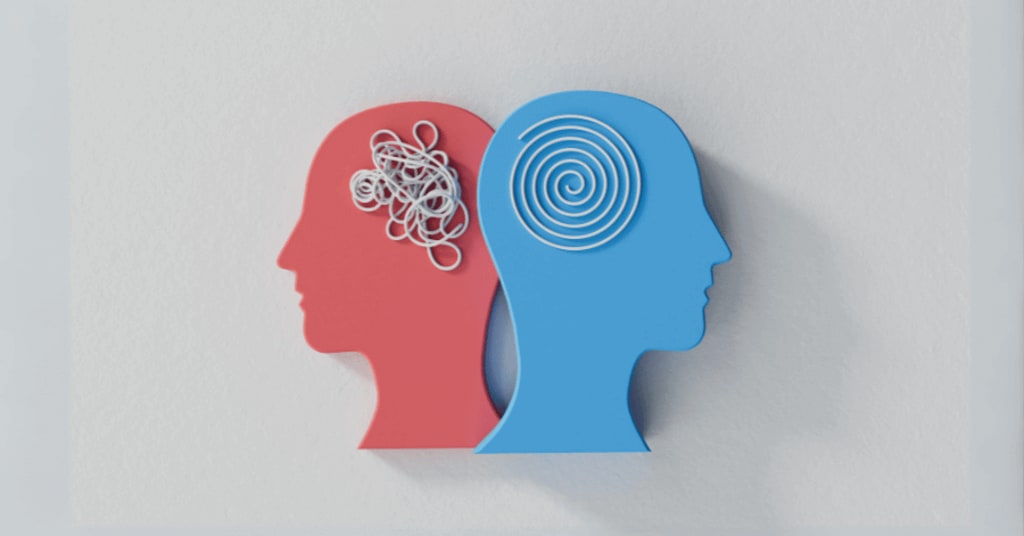The Virtue of Showing Emotional Restraint
“It’s important to explore the concept of having emotional restraint when facing criticism, the benefits of not escalating the situation to make it worse than it needs to be, and how it demonstrates maturity and grace when you can show restraint in the face of judgment or criticism, whether deserved or not.”

In both professional and personal settings, criticism is an inevitable part of life. Whether it comes from a colleague, a friend, or a family member, criticism can be challenging to navigate but important to embrace if it is justifiable. However, it can be especially difficult when the criticism is unwarranted or unjustified. Therefore, it is crucial to show emotional restraint in these situations, even when it feels difficult, rude, or unfair.
It’s important to explore the concept of having emotional restraint when facing criticism, the benefits of not escalating the situation to make it worse than it needs to be, and how it demonstrates maturity and grace when you can show restraint in the face of judgment or criticism, whether deserved or not.
Emotional restraint is known as the ability to control one’s emotions, particularly in challenging situations. When faced with criticism of something you did or something you said, it is natural to feel a range of emotions, including anger, frustration, and sadness. However, acting on these emotions and turning it back on the person(s) doing the criticism of yourself can often lead to negative outcomes. For example, responding to criticism with anger or defensiveness can escalate the situation and damage relationships, sometimes permanently. It can also lead to regrettable actions or words that cannot be taken back without regret or remorse.
On the other hand, showing emotional restraint allows individuals to respond to criticism in a calm, cool, and collected manner. This kind of attitude change can lead to more productive conversations and resolutions to problems that can arise. It also demonstrates emotional maturity and self-control, which are valuable traits in both personal and professional settings that will serve you well in life.
Emotional restraint is crucial in various everyday situations, as it helps maintain composure and fosters healthy relationships with other people. Here are a few examples where having good restraint in everyday situations can come in handy:
1. Workplace Criticism: When receiving feedback or criticism from a colleague or a supervisor, it’s essential to remain calm and composed and to not react. Reacting impulsively or defensively can escalate the situation and damage your professional relationships. Instead, by showing emotional restraint, it allows for a more constructive dialogue and a better understanding of the feedback that you are getting, whether you feel it’s warranted or not.
2. Family Disagreements: In family settings, disagreements are common, but reacting emotionally can lead to unnecessary conflict and trauma. By showing emotional restraint, individuals can avoid saying hurtful or insulting things they may regret later and work instead towards a resolution calmly and rationally that will maintain the relationship rather than rupture it.
3. Social Media Interactions: Online interactions can often lead to heated debates or arguments especially since they are being done behind a screen and not face to face with that person or a group of people. Instead of engaging in a war of words that can seemingly go on forever and escalate to be rude, nasty, or involve insults, you should be exercising emotional restraint, which can help maintain a respectful discourse and prevent the situation from escalating to bullying or harassment.
4. Customer Service Interactions: Dealing with difficult customers or clients in your work or volunteering often requires having emotional restraint. Remaining calm, kind, and empathetic can help resolve issues more effectively and maintain a positive reputation for the business or company that you’re working or volunteering for.
5. Traffic Incidents: Road rage is a common issue in our society, but showing restraint can prevent dangerous or deadly situations. Taking a deep breath, maintaining your focus on what you can control on the road, and staying calm and relaxed can help avoid confrontations and maintain safety on the road and help save yourself from an accident or a crash. You never know who you’re dealing with the other car or truck or bus so it’s best to not yell, engage them further, or leave the vehicle at any time to escalate such a dicey situation when it comes to ‘road rage.’
In any of these types of situations, having emotional restraint allows you to handle conflicts and criticism more effectively, fostering healthier relationships, and promoting a more peaceful environment. When faced with receiving criticism which will happen both professionally and personally, it can be tempting to respond in kind or to escalate the situation with the other party. However, this rarely leads to a positive outcome and can make the situation worse. Instead, it often leads to a cycle of negativity and conflict. By showing emotional restraint and not responding in kind to get into an argument or worse, individuals can break this difficult cycle of bad behavior and create a more positive environment.
Not escalating the situation also allows individuals to maintain their dignity and self-respect. It shows that they are confident in themselves and their abilities, and that they do not need to resort to negative behavior to defend themselves from criticism, whether it is justified or not from the other party. This kind of attitude can earn them respect from others including co-workers, romantic partners, or friends, and help to build and maintain stronger relationships when you show positive characteristics in your behavior by not reacting in a negative way.
Emotional restraint is both a sign of emotional maturity and grace. It shows that the person in question can control their emotions and can respond to criticism in a thoughtful and measured way to learn from their mistakes or to just take it in stride by not losing control of their emotions. This can be especially challenging when the criticism is unwarranted or unjustified. However, by showing emotional restraint, individuals can rise above the situation and demonstrate their maturity and grace in their dealings with other people.
Emotional restraint also shows that someone can put the needs of the relationship above their own ego. It shows that they are willing to listen to others’ feedback and consider the other person’s perspective, even if they disagree with it or won’t change because of it. This can lead to more open and honest communication, and ultimately, stronger friendships and relationships.
Overall, it is necessary these days to have emotional restraint as it is a valuable skill that can help individuals navigate criticism in both professional and personal settings. By showing emotional restraint, individuals can respond to criticism in a calm, cool, and collected manner, and avoid escalating the situation further. This kind of behavior from mature adults can lead to more productive conversations, problem solving, and better resolutions, and ultimately, a healthier and happier life by having this kind of outlook on managing your emotions well.
Emotional restraint demonstrates the need for having both maturity and grace and shows that someone should be able to put the needs of the relationship above their own ego or beliefs. Having the capacity for emotional restraint is an important life skill that can help individuals navigate criticism with both dignity and decency.
About the Creator
Ben W
Ben helps students from around the world to improve their English language skills. Ben enjoys traveling around the world, developing his writing abilities, and reading good books.






Comments
There are no comments for this story
Be the first to respond and start the conversation.